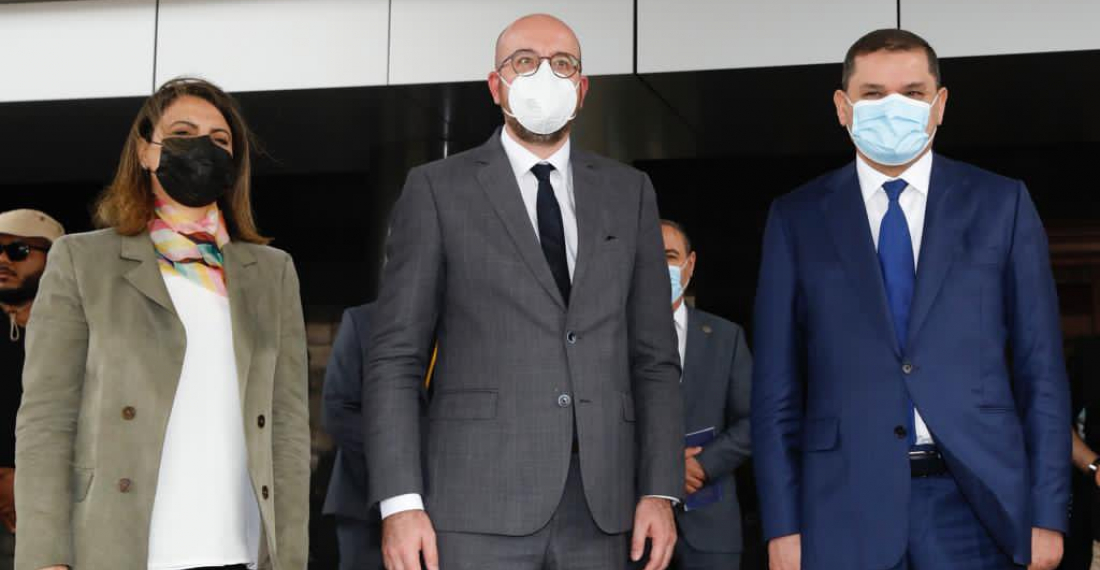European Council President Charles Michel offered the EU's support to Libya during a visit on Sunday to Tripoli. Michel met with officials from the interim government and discussed various political and developmental issues.
“We will work with the new government and support it", he said. "Economic recovery, elections, the fight against illegal immigration... are areas in which the EU can help.”
Michel also addressed the issue of foreign mercenaries and urged them to leave stating that their departure was a precondition for a return to stability.
“You have created an opportunity to rebuild your country, but there is one precondition — all foreign fighters and troops must leave the country,” he said, urging Libya’s political – and mostly armed – factions to seize a “unique opportunity to build a united sovereign stable and prosperous country".
Libya foreign minister, Najla el-Mangoush said the government's strategy is clear and serious towards about removal of foreign mercenaries from Libya.
A number of European embassies have re-opened in Tripoli and various European foreign ministers are visiting the country. Tripoli has welcomed this, and called other countries to take the same steps.
During his visit, Michel also said the EU would donate 50,000 Covid-19 vaccines, which would add to the delivery earlier on Sunday of 100,000 doses of the Russian Sputnik V jab – the first batch to arrive.
Read President Michel's remarks here.
Source: commonspace.eu with various sources.
Picture: European Council President Charles Michel received by interim Prime Minister Abdel Hamid Dbeibah and Foreign Minister Najla al-Mangoush. (Twitter: @eucopresident).







